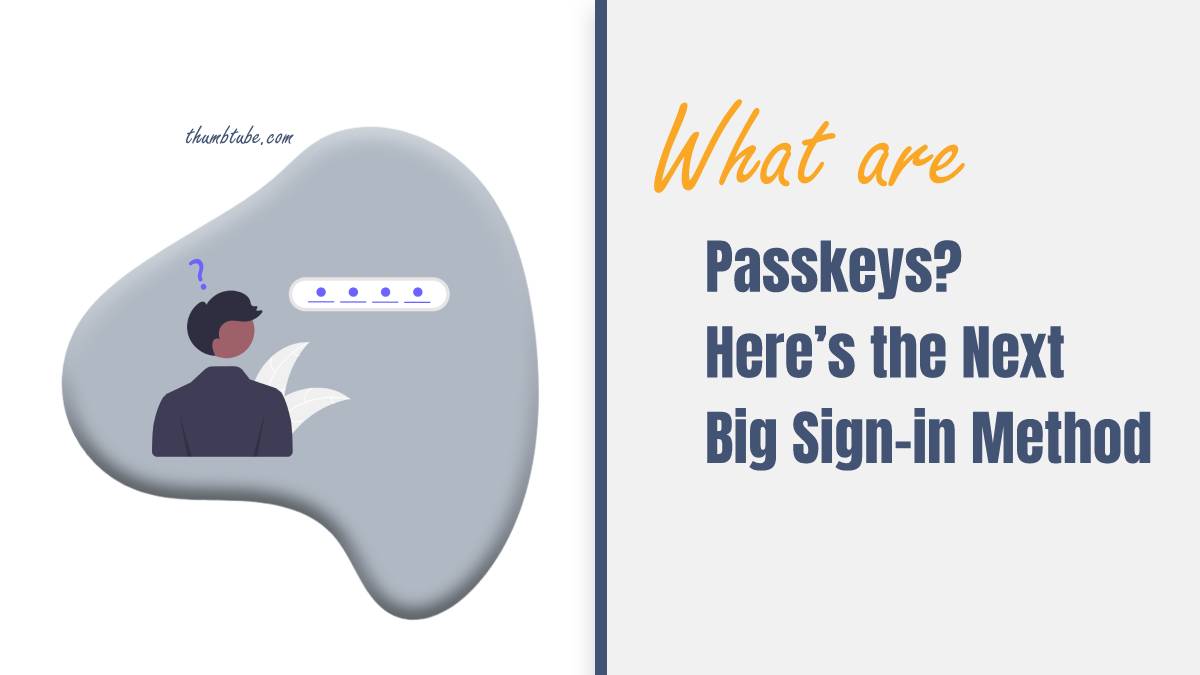In today’s digital age, secure and efficient authentication methods are essential to protect users’ privacy and security. Passwords have long been the primary method of authentication, but they have significant limitations. They are prone to hacking, easy to forget, and can be a significant source of frustration for users. As a result, the technology industry is constantly looking for new and innovative ways to authenticate users. One such method that is gaining attention is passkeys.

What are Passkeys?
Passkeys are a new sign-in method that replaces traditional passwords with a unique hardware-based identifier. A passkey is essentially a USB dongle or a specialized piece of hardware that plugs into your device’s USB port. When you plug in the passkey, it identifies you as the authorized user and grants you access to your account.
Passkeys work similarly to two-factor authentication (2FA), where users need to provide an additional piece of information beyond a password, such as a code sent to their phone. However, unlike 2FA, passkeys do not rely on sending a code to a user’s phone, which can be vulnerable to SIM-swapping attacks. Instead, the passkey itself is the second factor of authentication, and users need to physically plug it into their device to access their account.
Benefits of Passkeys
Passkeys offer several benefits over traditional passwords and other authentication methods:
- Increased Security: Passkeys are much more secure than passwords, which can be easily guessed or stolen. With passkeys, the only way to access an account is to have the physical device in hand, making it nearly impossible for hackers to gain access.
- Easy to Use: Passkeys are straightforward to use. Users need to plug in the device to authenticate, eliminating the need to remember complex passwords or enter codes sent to their phones.
- Platform Agnostic: Passkeys work with any device that has a USB port, making them platform agnostic. Users can use the same passkey across multiple devices and platforms without any issues.
- Cost-Effective: Passkeys are relatively inexpensive compared to other authentication methods, such as biometrics. They are also durable and can last for several years, making them a cost-effective solution.
Challenges of Passkeys
Despite the many benefits of passkeys, there are still some challenges that need to be addressed before they become mainstream:
- Hardware Dependence: Passkeys require a physical device, which means users need to carry it with them at all times. If a user loses their passkey, they could be locked out of their account, which can be frustrating.
- Limited Compatibility: While passkeys work with any device that has a USB port, some devices, such as smartphones and tablets, do not have USB-A ports. To use a passkey with these devices, users need to purchase an additional adapter.
- Limited Adoption: Passkeys are still a relatively new technology, and not all platforms and services support them. This can make it challenging for users to adopt them as their primary sign-in method.
Passkeys offer an exciting new sign-in method that addresses many of the limitations of traditional passwords. They are more secure, easy to use, and cost-effective than other authentication methods, making them an attractive option for businesses and consumers alike. However, like any new technology, passkeys face some challenges that need to be addressed before they become mainstream. As technology continues to evolve, passkeys are likely to become a more common sign-in method, offering users a convenient and secure way to access their accounts.
